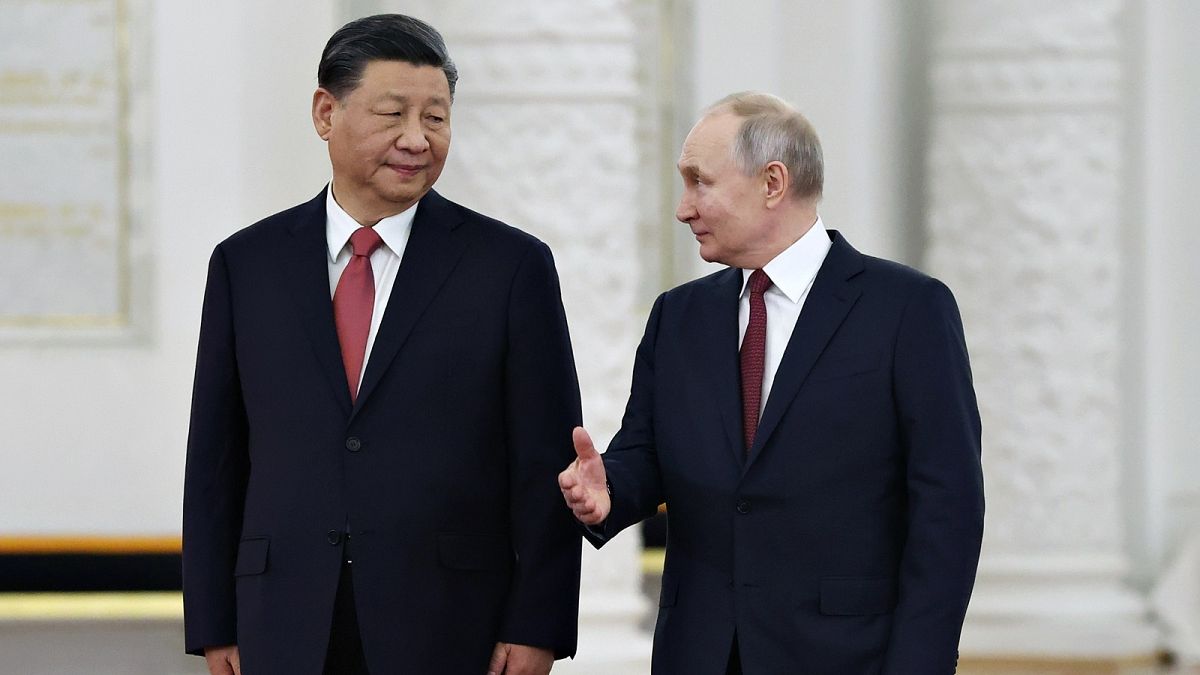
On Wednesday, the European Union agreed to impose a new round of sanctions on Russia, targeting for the first time companies in mainland China suspected of helping the Kremlin obtain banned materials.
The sanctions focus largely on combating fraud and go after companies around the world accused of supplying Russia with advanced technology and military goods manufactured in the European Union, especially drone components.
Companies from Türkiye and North Korea, among other countries, were also targeted. Nearly 200 people and entities, most of them from Russia, have been added to the blacklist, which now includes more than 2,000 names.
However, the package does not cover anyone allegedly involved in it Alexei Navalny diesThe most prominent critic of President Vladimir Putin. Tighter restrictions on aluminum were not included either, as the topic remains contentious.
Exact details of the sanctions will become available after they are published in the Official Journal of the European Union, which is expected to happen later this week.
“We must continue to weaken Putin’s war machine,” said Ursula von der Leyen, President of the European Commission.
The bloc had previously tried to punish a small number of companies based in mainland China, but complaints from officials in Beijing and reservations from some member states prevented the move. Eventually, Russia's close ties with China prompted diplomats in Brussels to try the idea again.
Trade between Russia and China has reached a record high of more than 240 billion dollars (213 billion euros) in 2023, according to customs figures released by the Chinese government. This number easily exceeds the $200 billion target set by the two countries.
The new set of EU sanctions, the thirteenth since February 2022, targets Russian-run institutions working to re-educate children kidnapped from Ukraine. The alleged kidnappings led to the issuance of an arrest warrant for President Vladimir Putin by the International Criminal Court, which considers the charge a war crime.
The package's approval was deliberately timed to coincide with the second anniversary of the war in Ukraine. This process has been slowed by Hungary, which is determined to prevent any restrictions related to Rosatom, the Russian nuclear company that has a monopoly on nuclear energy.
Rosatom is the main contractor in the expansion of the Pakse nuclear power plant, which supplies more than 50% of Hungary's electricity.
Despite small hurdles, the sanctions were approved three days before the symbolic deadline imposed by the European Union to mark two years since Russia's invasion of Ukraine, in contrast to last year when Almost missed the teacher.
The latest package focuses almost entirely on cracking down on sanctions evasion, a widespread phenomenon that can be compared to the Whac-A-Mole phenomenon: once one loophole is closed, another opens up.
China, the United Arab Emirates, Turkey, Kyrgyzstan, Kazakhstan, Uzbekistan, Serbia and Armenia have been under the EU's radar for months, with Special Envoy David O'Sullivan moving from country to country trying to persuade these governments to do more. .
“I think we have to be realistic,” O'Sullivan told Euronews. in December. “There's always going to be some degree of fraud. There's money to be made.”
Last year, the E.U Anti-phishing tool This allows the bloc to restrict certain trade flows with countries as a whole, rather than with specific companies. This tool is considered a last resort and its activation depends on the unanimous approval of member states, a condition that is becoming increasingly difficult to achieve.
A diplomat, speaking on condition of anonymity, said it had become “quite clear” that sanctions on Russia had not been as effective as the bloc had originally hoped, with Russian society still getting “what it wants”.
a Latest forecasts The IMF has improved Russia's economic outlook due to high military spending and strong consumption.
This piece has been updated with more details about the penalties.

“Travel specialist. Typical social media scholar. Friend of animals everywhere. Freelance zombie ninja. Twitter buff.”





More Stories
Taiwan is preparing to face strong Typhoon Kung-ri
Israel orders residents of Baalbek, eastern Lebanon, to evacuate
Zelensky: North Korean forces are pushing the war with Russia “beyond the borders”